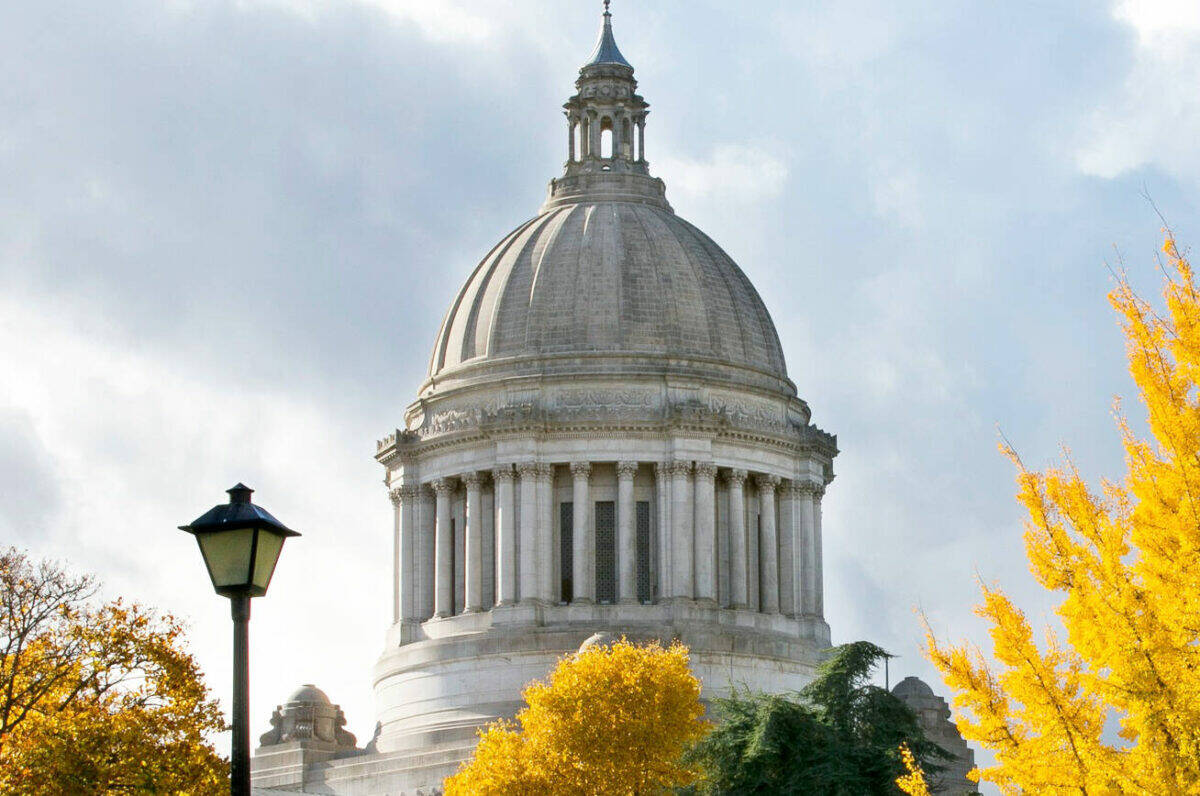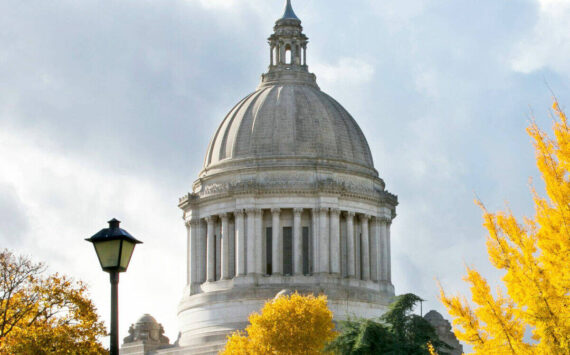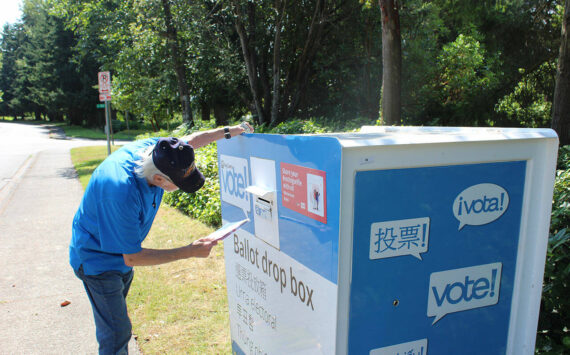Democratic lawmakers in Washington are beginning to lay out the buffet of tax increases they want to use to fill most of a $16 billion state budget shortfall.
There are hikes in business and capital gains taxes, new sales taxes on services and greater property tax collections by the state and local governments.
Other selections include an increase in a surcharge on technology companies, an expanded tax on nicotine products, and a mandate for some large businesses to make a one-time pre-payment of sales tax owed to the state.
Major financial institutions will pay a little more, too. And there’s a surcharge on corporations with more than $250 million in annual revenue that starts Jan. 1, 2026, and lasts four years. Among those exempted from that surcharge is Boeing.
The a la carte of taxes rolled out Tuesday, April 15 will bring in close to $12 billion over the next two budget cycles.
Democrats hope those receipts, combined with targeted spending reductions, will allow them to maintain current levels of service, pay for new and expanded programs authorized in previous budgets and cover the cost of updated collective bargaining agreements with state employee unions.
A pivotal question now is whether Democratic Gov. Bob Ferguson endorses the slate of tax measures. His office did not immediately respond to a request for comment.
House Majority Leader Joe Fitzgibbon, D-Seattle, said the governor is aware of the components of the package.
“We think he understands there is a need for revenue,” Fitzgibbon said.
State of play
Last month, House and Senate Democrats rolled out separate packages to raise up to $21 billion.
But Ferguson threw cold water on their desire to tax those with more than $50 million, a pillar in both approaches. The governor said this proposal was “untested, difficult to implement, and most importantly, for purposes of adopting a sustainable budget, will face an immediate challenge in court.”
That sent legislators searching for new options. They came up with a whole bunch.
They also discarded a payroll tax modeled on Seattle’s JumpStart tax that would have been levied on companies with large payrolls and highly-paid employees. This was another central plank in their earlier tax plans.
The new approach permanently increases the state’s primary business and occupation tax rates from 0.484% of gross proceeds to 0.5%. This move could affect hundreds of thousands of businesses. Another provision of House Bill 2081 boosts the tax rate for service businesses with annual taxable revenue exceeding $1 million from 1.75% to 2.1%.
Democrats’ latest proposals also still rely on many of the state’s corporate and banking giants to pay more.
Financial institutions with annual net income of $1 billion or more would see the rate for an additional tax they pay rise from 1.2% to 1.5% starting Oct. 1. This will impact about 200 businesses, Democrats have said.
About 400 corporations with more than $250 million in annual revenue would be subject to a 0.5% surcharge for four years.
The new plan also still targets wealthier individual taxpayers with the addition of a second tier of the state’s capital gains tax, which took effect in 2022 and has been upheld in court.
Washington imposes a 7% tax on gains over $270,000 from the sale or exchange of long-term assets like stocks, bonds and business interests. Senate Bill 5813 and House Bill 2082 call for a new 9.9% tax on gains greater than $1 million, an idea Senate Democrats discussed in December. This would bring in an additional $280 million for the budget, $560 million over four years.
One piece of the original House plan is retained. It would allow an increase in annual property tax growth from the current 1% cap to the combined rate of population growth plus inflation within a taxing district, not to exceed 3%. This would apply to the state’s common schools levy and for cities and counties, as well as special purpose districts.
A fiscal analysis for House Bill 2049 estimated uncapping the state property tax would bring in an additional $200 million in the next biennium and $618 million in the 2027-29 budget. The legislation could be voted on Friday in the House Finance Committee.
The Senate version will be among several tax bills receiving public hearings in the Senate Ways and Means Committee at 5:30 p.m. Wednesday, April 16.
Fault lines
Senate Minority Leader John Braun, R-Centralia, noted the new revenue legislation arrived on the same day as this year’s deadline for individuals to file their federal income taxes.
“This isn’t just bad timing; it’s bad governing,” he said in a statement. “Washington families are already feeling the pinch of high inflation, soaring housing costs, and a slowing economy. Now, Democrats want to pile on even more taxes — on small businesses, on innovation, and on the very people who are trying to build a future here.”
Sen. Chris Gildon, R-Puyallup, the Republican lead on the Senate Ways and Means Committee, said Tuesday it will be his “number one job” in the waning days of the session to “defend the people who will be hit hard by the massive taxes.”
Then, invoking the words of the late President Ronald Reagan, Gildon said, “When someone says they want to tax business, what they’re really saying is they want to tax you, they just don’t want you to know they’re taxing you.”
Several hundred people gathered outside the state Capitol on Tuesday afternoon to protest against Democrats’ tax plans.
Elizabeth Doll of Bainbridge Island said if property taxes climb, her landlord will likely be forced to pass it on in the form of higher rent.
“Democrats in Washington say they want to follow the science but they’ve been unwilling to follow the science of economics,” she said. “Stop the property tax. Stop the tax increases. Stop harming those of us who are trying to make a living and become successful adults.”
Braun was one of several Republican lawmakers to address the crowd.
“We want fiscal restraint. We want fiscal responsibility,” Braun said. “We need your voice pushing back against all the taxes that they can’t seem to get enough of.”
Not all concern Tuesday came from Republicans and the business community.
Rep. Shaun Scott, D-Seattle, disagreed with exempting Boeing from the four-year surcharge imposed on companies with annual earnings above $250 million. He said he’s drafted an amendment to exempt the firm from the added 0.5% tax for two years and it would pay the final two years.
“We are in a budget climate today where we are asking everyday people to make sacrifices,” he said. “It is disappointing to see that some of the entities who have gotten the best deal from the government are potentially going to get off scot-free.”
Washington State Standard is part of States Newsroom, a nonprofit news network supported by grants and a coalition of donors as a 501c(3) public charity. Washington State Standard maintains editorial independence. Contact Editor Bill Lucia for questions: info@washingtonstatestandard.com. Follow Washington State Standard on Facebook and Twitter.





